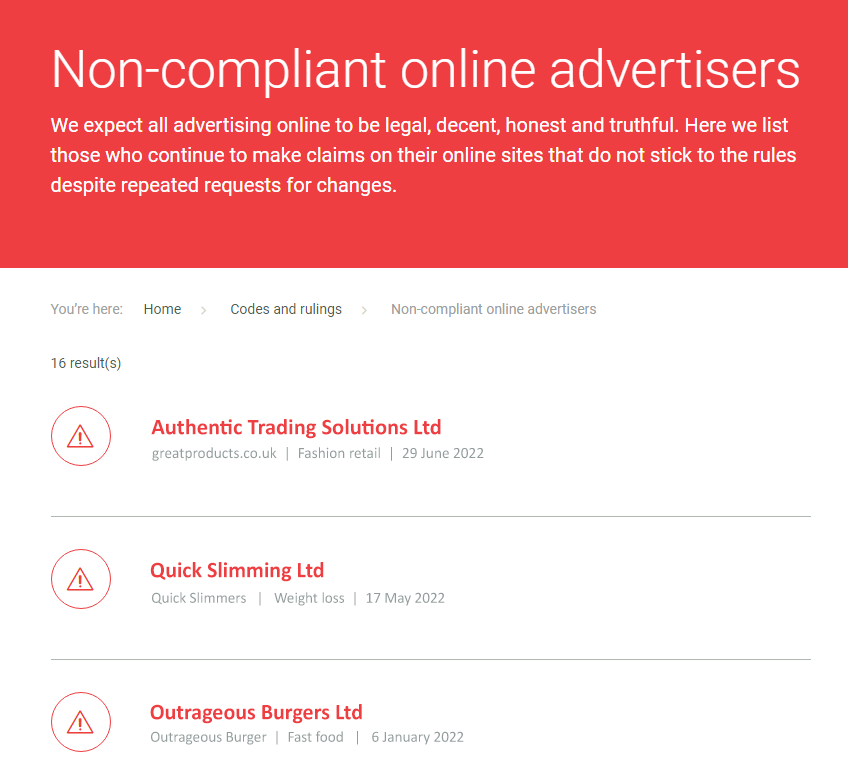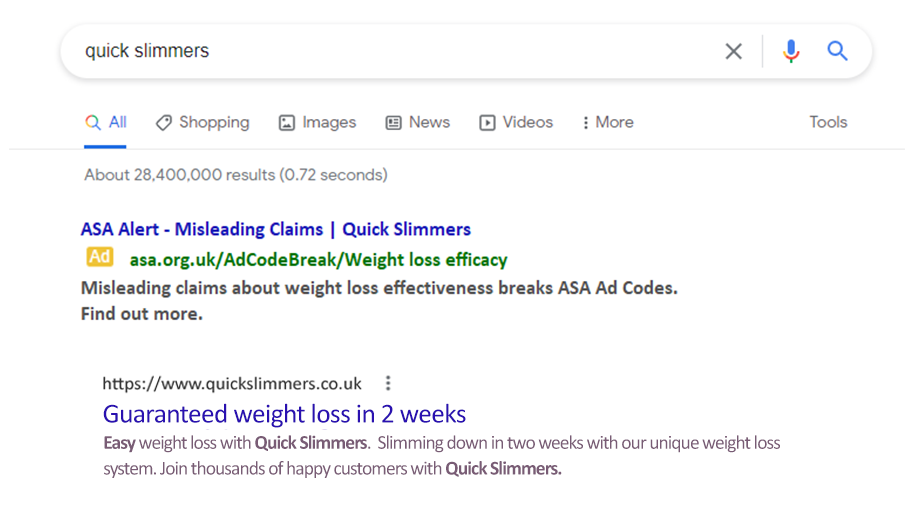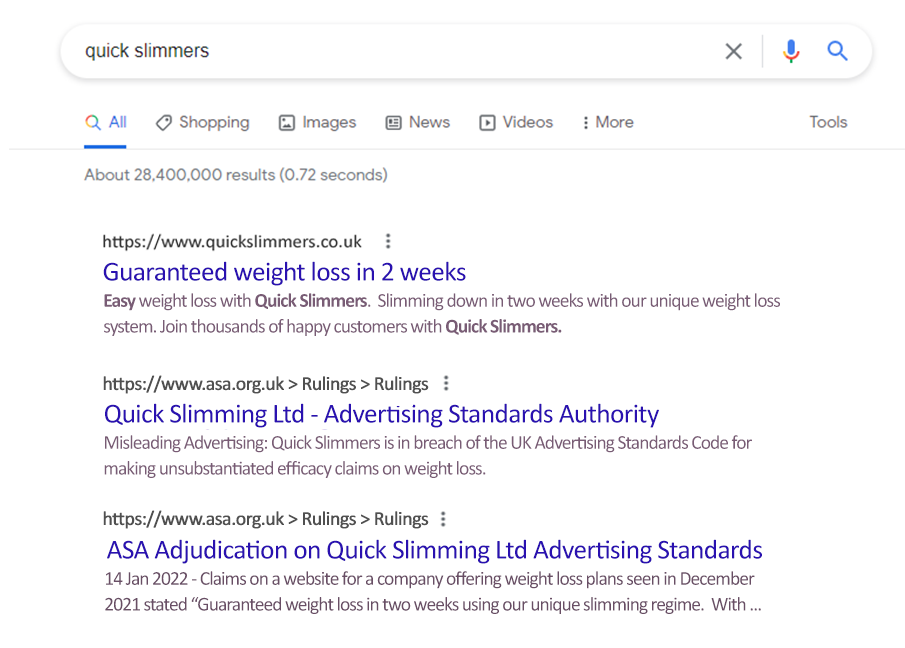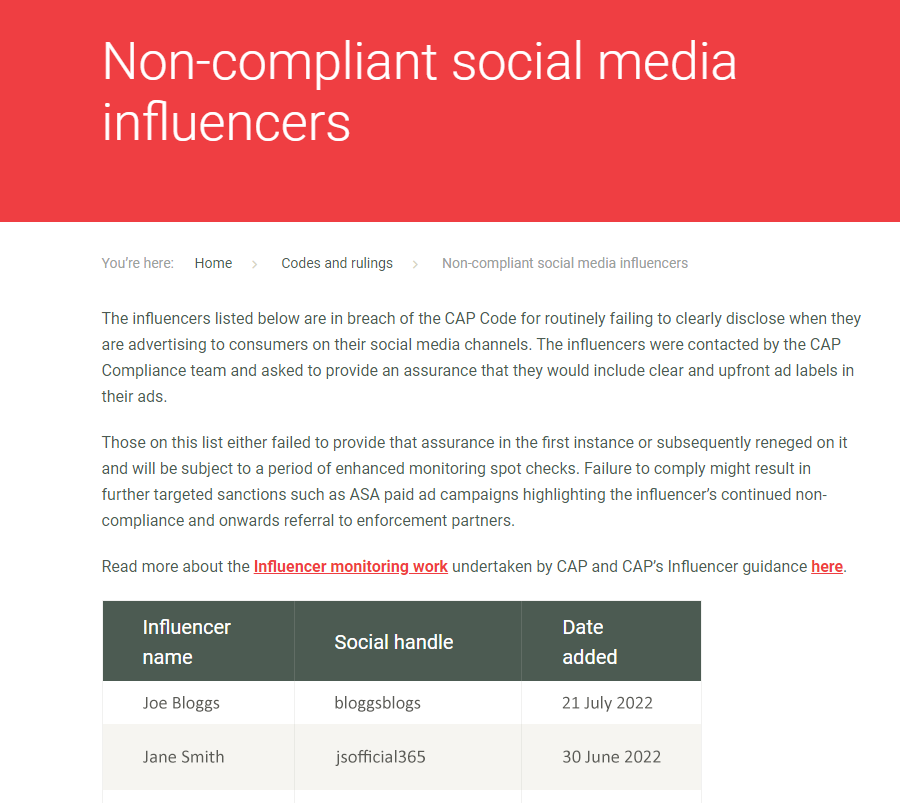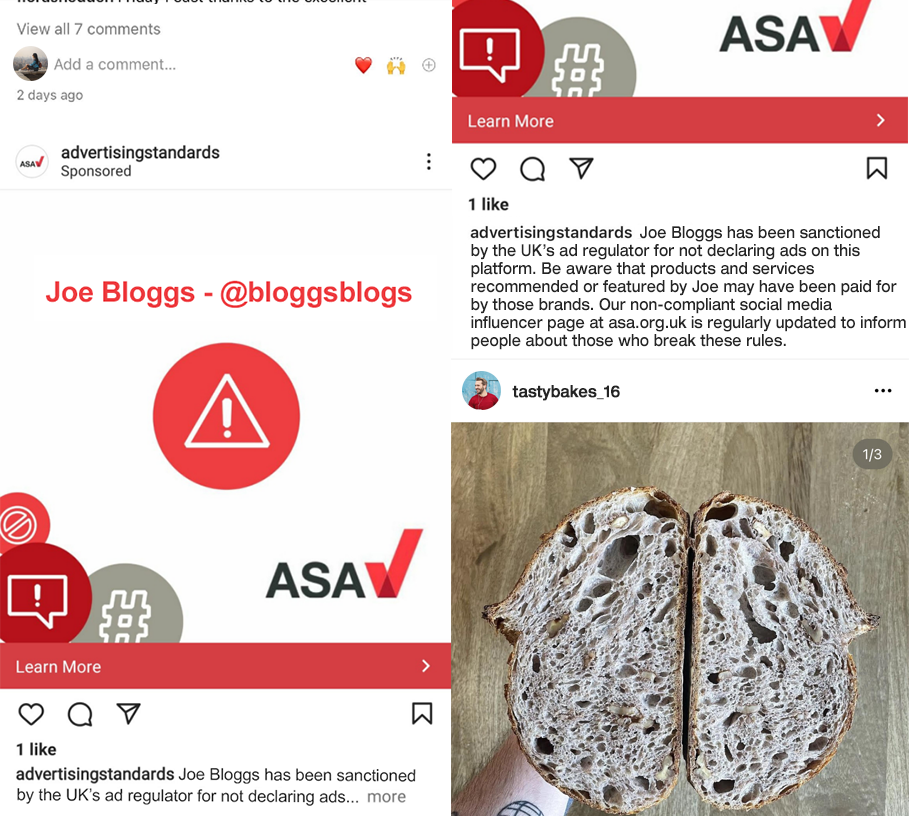The vast majority of advertisers and broadcasters agree to follow ASA rulings, not least because if they are seen to be ignoring the rules designed to protect consumers, it can significantly damage their reputation.
Where needed, the CAP Compliance team can provide follow-up advice and guidance to help them comply with the rules, but when a party is unwilling or unable to comply, there are numerous sanctions which we can deploy, depending on the circumstances.
For more information about what to expect when dealing with the CAP Compliance team, find our Compliance Procedures here:
Non-broadcast sanctions Online
Where non-compliant claims appear on a marketer's own website, or in other non-paid-for space under their control, such as their social media accounts, we can:
- Add their name and details of the problem with their advertising to a dedicated section of the ASA website until they comply. We use search engine optimisation to ensure those details appear in search engine results when consumers look up the company’s website;
- Ask Search Engines to remove paid-search ads when those ads contain material – or a link to a page on the marketer’s website that contains material – which breaks the rules;
- Place our own paid-search ads to highlight the advertiser’s name and non-compliance;
- Work with social media companies, including under the Intermediary and Platform Principles, more information on which can be found here, to have non-compliant content removed from their platforms.
For social media influencers who routinely fail to clearly disclose when they are advertising, we can:
- Add their details to our dedicated non-compliant social media influencer page for up to three months; and,
- Run our own On-Platform Targeted Ads, alerting users when an influencer has repeatedly failed to properly disclose when they are advertising.
Offline
Most offline sanctions for non-broadcast advertising are co-ordinated through CAP, whose members are trade associations representing advertisers, agencies and media. CAP can:
- Issue Ad Alerts to its media owner members, advising them to withhold services such as access to advertising space;
- Ask its members to revoke, withdraw or temporarily withhold recognition and trading privileges. For example, the Royal Mail can withdraw its bulk mail discount, which can make running direct marketing campaigns prohibitively expensive;
- Ask its poster industry members to invoke mandatory pre-vetting for advertisers who have persistently or seriously broken the CAP Code on grounds of taste and decency or social responsibility. The pre-vetting can last for two years;
- Ask its members to disqualify, from industry awards, any ads that break the Code, denying advertisers and the agencies that created the ads the opportunity to showcase their work.
Ultimately if advertisers persistently break the rules and don’t work with us, we can and do refer them to other statutory enforcement bodies for the further action, such as Trading Standards. See our Trading Standards enforcement leaflet for examples of the sanctions available to them, as our legal backstop for non-broadcast advertising.
Such referrals are rarely necessary, as most advertisers prefer to resolve the matter directly with us.
Broadcast sanctions
UK broadcasters (licenced by Ofcom) are required to follow ASA rulings and the UK Code of Broadcast Advertising as part of their licence conditions.
For broadcast advertisements, the responsibility to withdraw, change or reschedule a commercial lies with the broadcasters.
Broadcasters are required by a condition of their broadcast licences to enforce ASA rulings. If they persistently run ads that fall foul of the Broadcast Advertising Code, broadcasters risk being referred by the ASA to Ofcom, which can impose fines and even withdraw their licence to broadcast.
Video-on-demand
We can refer VoD media providers to Ofcom if they break certain aspects of the Code and if they refuse to work with us.
The ASA’s designation by Ofcom of regulating Video-on-demand advertising means that failure to stick to the rules in the VOD Appendix may result in the matter being referred to Ofcom with a view to Ofcom considering whether the media service provider has contravened the relevant requirements of the Act.


